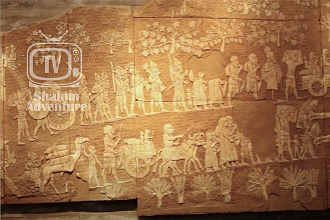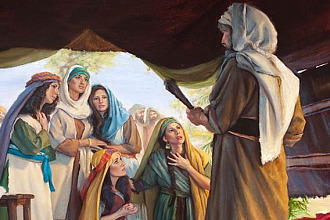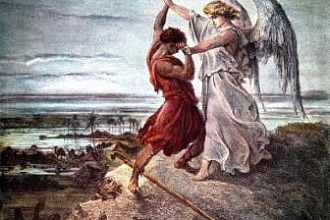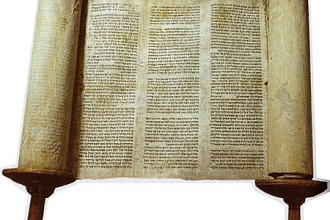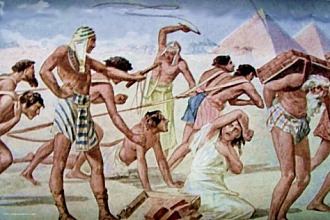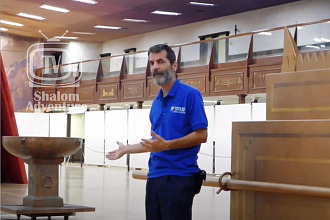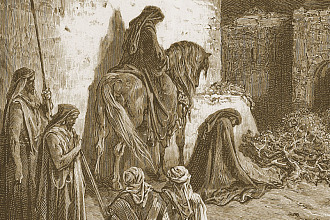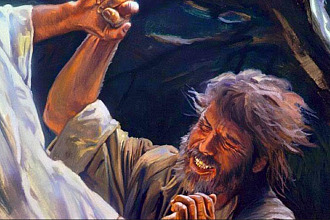History records the glories and triumphs of the golden kingdom of Babylon’s King Nebuchadnezzar.
King Nebuchadnezzar had conquerd Assyria, Egypt and Israel. He had taken the gold from the temple in Jerusalem to add to his already abundant store. He was the greatest warrior-king and ruler in the known world.
However, he had failed to achieve his dream of glory when he erected the 90-foot golden image that represented himself and his kingdom. The show was stolen simply because three Hebrew God-followers refused to worship that image. This brave trio refused to be intimidated by severe threats of losing their lives. All worship of the golden image was forgotten. Every eye was riveted upon the blazing fire in that smelting furnace. When the three were consigned to the fiery furnace, a fourth--a divine being, joined them—all walking in the blazing fire. When removed, the three were intact, their clothes and hair unsinged, and lacking even a trace of smoke. No doubt the talk around the home tables later extolled the bravery and deliverance of the three honoured men, outstripping talk of the impressive ceremony to worship the golden image. (see Daniel 3)
Time erased the bitter memory of this deflation of his arrogant pride. Again, years later, the king became overly satisfied with his conquests and building up Babylon to heights of beauty and glory. He boasted, “Is not this great Babylon that I have built...by the might of my power and for the honour of my majesty?” (Daniel 4:30)
Previously warned in a dream which the Jewish captive Daniel had interpreted, the king seemed heedless of what was about to happen from indulging his overarching pridefulness. Immediately following these boastful, self-praising words he was stricken and spent seven years reduced to insanity and animal-like conduct. At the end of that time God restored his reason and his kingdom.
Then it was that as a changed man, King Nebuchadnezzar humbled himself before God, recounted the entire humiliating experience, writing in Aramaic his personal conversion experience as recorded in Daniel chapter 4.
It would appear that he spurned his former belief in his pagan god Marduk, and extolled the God of heaven who had manifested Himself so powerfully to the king. He closes his account with these God-honouring words: “Now I Nebuchadnezzar praise and extol and honour the King of heaven, all whose works are truth, and his ways judgment, and those that walk in pride he is able to abase.” (Daniel 4:37)
Friend of mine, is it clear that God saw something in that proud king that He knew would respond to Him when his pride was abased? Do you think that God sees our pride and allows events to humble us so that we, too, can grasp the opportunity to praise the God of heaven alone? Then we, like Nebuchadnezzar can cease bragging about our achievements, but instead glorify our Father which is in heaven.
Picture originally found here








